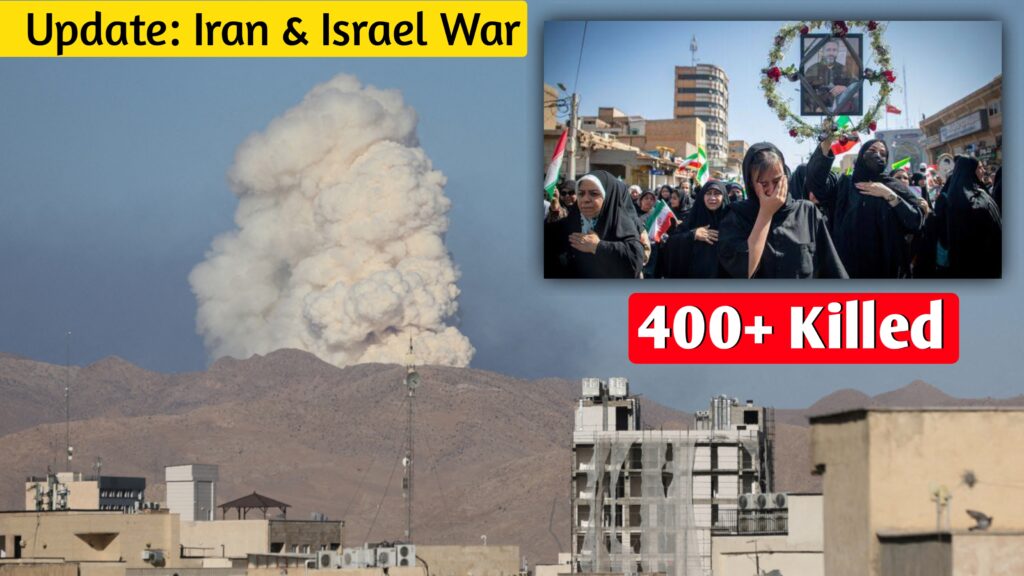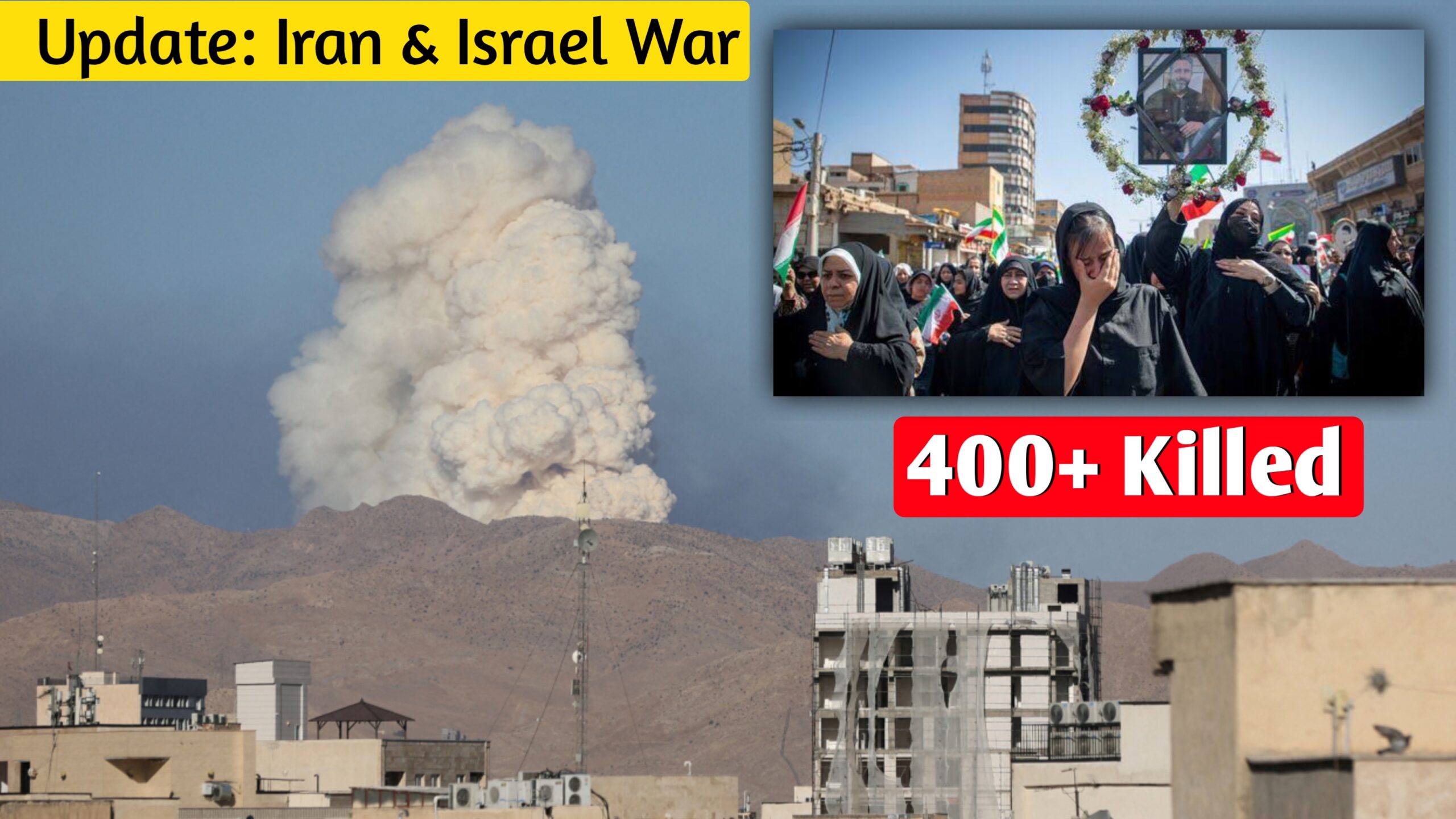In a tragic development that’s shaking the global stage, Iran reports 400 deaths in conflict with Israel, a number that includes both civilians and military personnel. The figure was released by Iranian state sources following a series of intense airstrikes and missile exchanges that have rattled major cities. The violence marks one of the deadliest escalations in the region in recent years and has now drawn urgent attention from the international community.

Table of Contents
Iran Reports 400 Deaths in Conflict With Israel: Non-Stop Strikes Shatter Cities and Families
Reports from Iran reveal widespread destruction across key urban regions. Cities like Isfahan, Tabriz, and Shiraz have faced waves of aerial assaults, with emergency sirens now a common sound across neighborhoods. Iranian emergency units have been deployed in full force, yet many hospitals are reportedly overrun. Citizens have been urged to stay indoors as military movements increase nationwide.
The Israeli government, in response to Iran’s alleged involvement in earlier drone attacks near its northern borders, launched what it called “precision strikes” on strategic Iranian targets. These include suspected missile launch sites and military communication hubs. However, Iranian officials claim the bombings have also hit residential buildings, schools, and even hospitals, causing severe civilian harm.
Iran’s death toll has now exceeded 400, according to the country’s health ministry. Many fear the real figure could be higher, as rescue operations are still ongoing in areas where debris and fires have blocked access.
World Powers React as Tensions Spiral Out of Control
The increasing casualties and fast-moving conflict have alarmed leaders around the globe. The United Nations called for an emergency session, emphasizing the urgent need for a ceasefire. The European Union has pushed for diplomatic intervention and warned of further instability if talks don’t begin immediately.
Meanwhile, the United States has diverted major naval forces, including the USS Gerald R. Ford, to the region as a precautionary move. Officials from the Pentagon have stressed that the deployment is defensive in nature but added that “all options remain open.”
Neighboring countries like Turkey, Iraq, and the UAE are now bracing for possible fallout. Governments across the Middle East are boosting surveillance and border security amid fears that the war could spread through allied militia groups or proxy forces.
Adding to the chaos, Iran’s military leadership has declared a state of full combat readiness. Reports indicate that Iran has mobilized a significant number of troops along its western borders, with intelligence suggesting preparations for potential ground operations. Drone activity has also increased, with both sides engaging in surveillance and counter-surveillance missions. The skies over Tehran and Jerusalem are now under constant monitoring, as fears of an expanded aerial war grow stronger by the hour.
Meanwhile, humanitarian agencies are raising the alarm over the deteriorating conditions in Iran’s conflict zones. Organizations like the Red Crescent and Médecins Sans Frontières have appealed for safe passage into affected areas, warning of a looming crisis if food, water, and medical aid cannot reach the injured and displaced. Civilians trapped in damaged buildings or underground shelters are reportedly without electricity or communication, further complicating rescue and relief efforts.
Conclusion: A War That Could Shake the Region
With Iran reporting 400 deaths in the conflict with Israel, the situation is teetering dangerously on the edge of a wider regional war. The loss of life, the destruction of infrastructure, and the breakdown of diplomatic relations signal a deepening crisis that may be hard to contain. Unless swift action is taken by world powers and peace-focused coalitions, the Middle East may be heading into one of its darkest chapters in recent history.
For Daily Updates Visit here.
